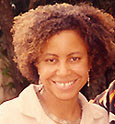 This week, the government of the Democratic Republic of Congo (DRC) released the devastating and mind-boggling news that more than 5 million people have died, in association with 10 years of regional conflict in the Congo.
This week, the government of the Democratic Republic of Congo (DRC) released the devastating and mind-boggling news that more than 5 million people have died, in association with 10 years of regional conflict in the Congo.This puts some perspective on what many have called "Africa's World War" ... the result of internal conflicts and international intervention in what has become a regional conflict. The good news is that the government has signed a deal with rebels designed to end fighting in the war-torn eastern part of the country.
The remoteness and poverty of this region have certainly contributed to the death toll. So many have died in secret, fleeing into the jungle in an attempt to escape the conflict, only to be confronted by brutality, disease and deprivation there.
World Vision's Rory Anderson to Blog
Over the next two weeks we are privileged to have as a participant in this blog Rory Anderson, from our Washington DC office of Public Policy and Advocacy. As World Vision's deputy director for advocacy & government relations, Rory advocates for increased U.S. attention to human rights, humanitarian and development issues, with a focus on regions affected by conflict or disaster.
Rory is a passionate advocate for children and families who are being devastated by the crisis in the Congo, and she is visiting the war-torn regions over the next three weeks. She will be bringing us daily updates from what she is learning.
Currently dedicated to promoting increased U.S. engagement in the regional conflicts in northern Uganda, Sudan and the DRC, Anderson co-authored “Pawns of Politics: Children, Conflict and Peace in Northern Uganda” [PDF -- 5 pages, 3mb]. This report summarizes the history and devastating impact of Uganda’s 20-year civil war, which includes tens of thousands of children who have been abducted and forcefully conscripted into the rebel Lord’s Resistance Army. More than 1.3 million civilians have been forced from their homes. The report also sets forth recommendations for pursing peace.
Between 2001 and 2002, Anderson helped initiate a multi-agency advocacy campaign to end the trade of “conflict diamonds” that fund wars in several parts of Africa. As part of those efforts, Anderson played a lead advisory role in drafting and enacting the Clean Diamond Trade Act of 2003 and the Kimberley Process Certification Scheme, which regulates the international diamond trade.
Anderson also pressed for 10 percent of global AIDS funding to be dedicated to the care of orphans and children made vulnerable by this disease, as stated in the Global AIDS, TB and Malaria Act. With partner agencies, she also promoted the passage of the Sudan Peace Act.
Anderson holds the Bachelor’s degree in international affairs from George Washington University and the Master of Arts in international development from the University of Leeds in the United Kingdom.
During her last trip to the DRC in January 2007, Rory found that World Vision's local staff spoke repeatedly about children being forced to mine uranium, cobalt, and other toxic substances. "I was both horrified and intrigued," she writes, "as this could be an important issue for World Vision to prioritize into our advocacy and campaigning work, because many of these children are informally mining for U.S. companies.
"The purpose of my current trip, therefore, is to follow up with our staff concerns about child mining, and to begin research for a broader policy and advocacy paper which can be used by our respective offices to begin advocating on behalf of these children both in the DRC and abroad."
Rory is in the DRC for two weeks. The first week she is visiting Katanga province (in the southern DRC), and the second week she is visiting North Kivu to do more research on child soldiers. Her first blog entry will be posted later today, so stay tuned!

No comments:
Post a Comment